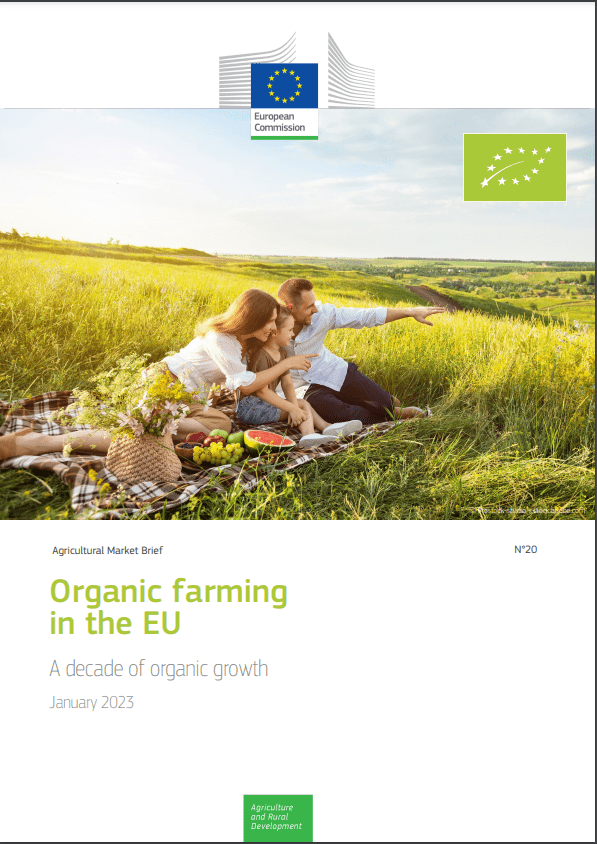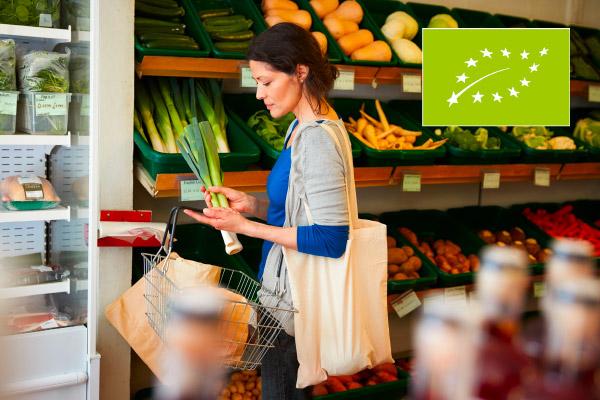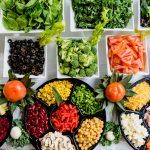The share of EU agricultural land under organic farming increased by more than 50% over the period 2012-2020, with an annual increase of 5.7%. In 2020, 9.1% of the EU’s agricultural area was farmed organically. On average, though with substantial variation across Member States, organic farms are bigger than conventional farms and run by younger farm managers. Echoing the growth of production, the retail sales of organic products doubled in the EU between 2015 and 2020.These are among the main conclusions of the Market Brief on organic farming published today by the European Commission.
The four countries with the largest area under organic farming in the EU are France, Spain, Italy and Germany, together accounting for 52% of the total in 2012 and 59% in 2020. The largest share of the area under organic farming in the EU was dedicated to permanent grassland (42%), followed by green fodder (17%), cereals (16%), and permanent crops, such as fruit, olives and vineyards (11%). Despite significant growth, organic animal production still accounts for a small share of total EU animal production, between 1% and 7% depending on the sector.
At a time when it is crucial for the EU to reduce its dependence on fertilisers for geopolitical, environmental and economic reasons, data from the EU Farm Accountancy Data Network (FADN) show that organic plant production farms spend much less on these products and on pesticides than conventional farms. Organic arable crop farms save 75-100% on plant protection product costs per hectare and 45-90% on fertiliser costs per hectare compared to conventional farms. Organic farms have lower yields on average (5-30% lower for crop yields for example) and in some sectors have a greater need for labour to produce the same output value as conventional farms. They still generate similar or higher income per worker thanks to higher prices as well as higher levels of EU support, stemming mainly from the Common Agricultural Policy (CAP). .
In 2020, 61.6% of EU land under organic farming received specific organic support payments from the CAP, with on average €144/ha of CAP support and €79/ha of national co-financing. Organic farmers in areas with natural constraints could receive additional support, which encourages agriculture in areas with natural handicaps. Further rural development measures also supported the development of organic production, including investments in organic farming practices and aid for the marketing and promotion of organic products. In the new CAP (starting in 2023), the share of UAA that will receive CAP support for organic farming is higher.

Organic farming in the EU – a decade of organic growth
|
The rapid increase of sales of organic products shows the growth of consumer demand and the success of measures sustaining demand. The growth in organic sales was particularly strong during the COVID-19 pandemic, understood as the consequence of consumers paying more attention to health issues, higher food consumption at home and/or the shortage in conventional food. Current economic developments, such as food inflation, however, affect EU consumers’ purchasing power and have a bearing on the demand for organic products.
The market brief published today covers data on organic farming and the evolution of the EU organic sector over the last decade, with analytical elements on organic production, the sustainability of the organic sector, organic sales, imports of organic products and the type and amount of public support received by the EU organic sector. It outlines how EU support for organic farming will help achieve the Green Deal ambition and includes an overview of the support for conversion and maintenance of organic farming as well as the ambition for organic farming in the CAP strategic plans. There is a special focus on the development of the organic farming sector in selected EU Member States, namely Austria, Poland, Czechia, France and Romania. The report also presents EU initiatives promoting research and innovation in the organic sector.
Background
By producing high quality food with low environmental impact, organic farming will play an essential role in developing a sustainable food system for the EU. In 2021, the European Commission adopted action plan in support of the target of at least 25% of the EU’s agricultural land under organic farming and a significant increase in organic aquaculture by 2030 set out in the Farm to Fork strategy and the Biodiversity strategy. In that context, Member States were asked to set national target values for organic farming (in % of total UAA in 2030) and to be generally ambitious on organic production in their CAP strategic plans and in their national organic action plans.
Source: European Commission







Leave a Reply